#Literary legacy
Explore tagged Tumblr posts
Text
"Truth is as terrible as death but harder to find."
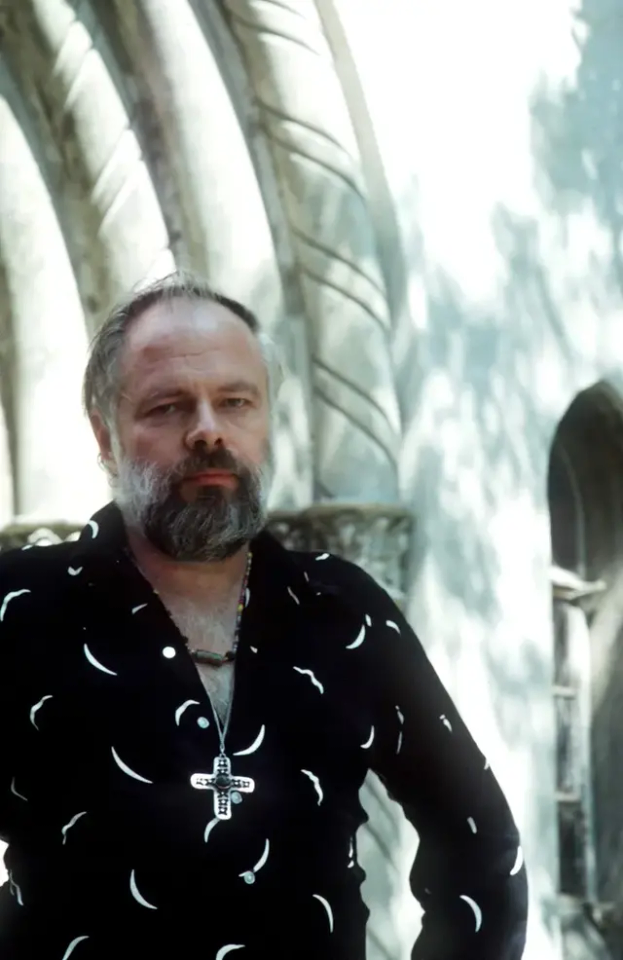
Philip Kindred Dick, often referred to by his initials PKD, was an American science fiction writer. He wrote 44 novels and about 121 short stories, most of which appeared in science fiction magazines during his lifetime.
Born: 16 December 1928, Chicago, Illinois, United States
Died: 2 March 1982, Santa Ana, California, United States
Influential Works: Philip K. Dick's impact on science fiction is profound, with several of his works adapted into popular films. "Do Androids Dream of Electric Sheep?" served as the basis for the iconic film "Blade Runner," directed by Ridley Scott. The movie's success helped cement Dick's reputation in mainstream culture.
Personal Struggles: Dick faced numerous personal challenges throughout his life, including financial difficulties and mental health issues. His struggles with mental health and experiences with hallucinations and visions heavily influenced his writing, contributing to the surreal and introspective nature of many of his works.
Prolific Output: Despite his personal challenges, Dick maintained a remarkably prolific writing career. He wrote 44 novels and over 100 short stories during his lifetime. His ability to produce imaginative and thought-provoking content at such a high volume is a testament to his dedication to the craft of writing.
Philosophical Themes: Dick's works often explore philosophical and metaphysical themes, challenging the boundaries of reality and identity. Questions about what is real, the nature of consciousness, and the impact of technology on humanity are recurring motifs in his stories, reflecting his deep interest in these subjects.
Posthumous Recognition: While he faced financial struggles during his lifetime, Philip K. Dick gained increased recognition after his death. His influence on science fiction literature and the exploration of complex philosophical ideas have earned him a lasting legacy. The Philip K. Dick Award, established in 1982, is given annually to outstanding science fiction works in paperback original format, honoring his contributions to the genre.
#Philip K. Dick#PKD#Science Fiction#American Writer#Novelist#Short Stories#Blade Runner#The Man in the High Castle#Ubik#A Scanner Darkly#Reality#Identity#Metaphysical Themes#Sci-Fi Literature#Prolific Author#Psychological Exploration#Mind-bending#Human Experience#Science Fiction Magazines#Literary Legacy
28 notes
·
View notes
Text
Hey friends! I know it has been some time. My file is completely corrupt and I dont think its salvageable without losing a lot of story that has already been completed. I would love to hear your thoughts; If you could take the poll below! In the meantime, there is a new speedbuild video out for this week before the stream on Sunday :) https://youtu.be/6uwHbX0_r-Y
0 notes
Text
राष्ट्रसंत साहित्य विचारकृतीचा तेलंगानात डंका
सांगडी (तेलंगणा राज्य) येथे झालेल्या आंतरराज्य राष्ट्रसंत साहित्य विचारकृती संमेलनावर एक दृष्टिक्षेप… 🖊️ डॉ. धर्मा वाघुजी गावंडेसदस्य , राष्ट्रसंत साहित्य विचारकृती संमेलन समितीभ्रमणध्वनी – 9421720676 ‘वाड.मयी सेवा सेवाची जाण ।जेणे मार्गी लागती जण ।जन जन तितका जनार्दन । जाणूनी कार्य करावे’ ।। ग्रामगीता राष्ट्रसंत तुकडोजी महाराजांच्या ग्रामगीतेतील पहिल्या अध्यायातील ही साहित्य विषयक ओवी खूप…
#Bandopant Bodekar#cultural dialogue#cultural symposium#Indian Philosophy#inter-state seminar#interstate literary event#literary contributions#literary discussions#literary greatness#literary legacy#Maharashtra and Telangana connection#Maharashtra Literature#Marathi intellectual heritage#Marathi Literature#Rashtrasant philosophy#Rashtrasant Tukdoji Maharaj#saint literature#Sant sahitya#Sant tradition in literature#social reform#spiritual discourse#spiritual teachings#Telangana conference#Tukdoji and society#Tukdoji Maharaj impact#Tukdoji Maharaj thoughts#आंतरराज्य साहित्य संमेलन#आंतरराज्य सेमिनार#आध्यात्मिक विचार#आध्यात्मिक शिकवण
0 notes
Text
Achebe reshaped English literature with African voices, traditions, and wisdom. His legacy made English a global language of shared stories, challenging colonial narratives and celebrating cultural identity.
0 notes
Text
Edgar Allan Poe: The Tragic Life and Enduring Legacy of a Gothic Master
Edgar Allan Poe is one of the most influential figures in American literature, known for his macabre and Gothic tales. His life, however, was fraught with tragedy and hardship, which often mirrored the dark themes of his stories and poems. This article delves into the poignant and tumultuous life of Edgar Allan Poe, exploring the personal losses, struggles, and the literary legacy he left…
#American Literature#Edgar Allan Poe#gothic literature#literary legacy#The Raven#tragic life#Virginia Clemm
0 notes
Text
Bleu's Reviews: The Personal Librarian
My journey with The Personal Librarian began with a serendipitous visit to the Morgan Library for my birthday. My friend Tamaya and I stumbled upon the 100-year celebration of the library’s founding and uncovered the remarkable story of the woman who brought it to the height of its prominence: Belle de Costa Greene.But who was Belle de Costa Greene? The exhibit and short film we viewed revealed…

View On WordPress
#African American history#art history#Belle de Costa Greene#Black excellence#Black women pioneers#Blu Moon Reads#Book Recommendations#Book Review#Historical Fiction#identity and legacy#illuminated manuscripts#J.P. Morgan Library#literary legacy#Marie Benedict#must-read books#passing as white#The Personal Librarian#Victoria Christopher Murray#women in history
0 notes
Text
wondering if i started writing about my characters would anyone be interested? i'm thinking of writing a few one-shots just for fun but also i'm wondering if anyone here would take interest in it 😅
i have a lot of stories in mind that i'd love to put out!
#i'm also not very confident in my literary skills but i'm trying to improve so i can share 🥹#my first one-shot would most likely be following mousey's pov of the whole ancient magic situation!#and after a few one-shots i'd probably start on a longfic for milena#hogwarts legacy#hogwarts legacy mc
44 notes
·
View notes
Text



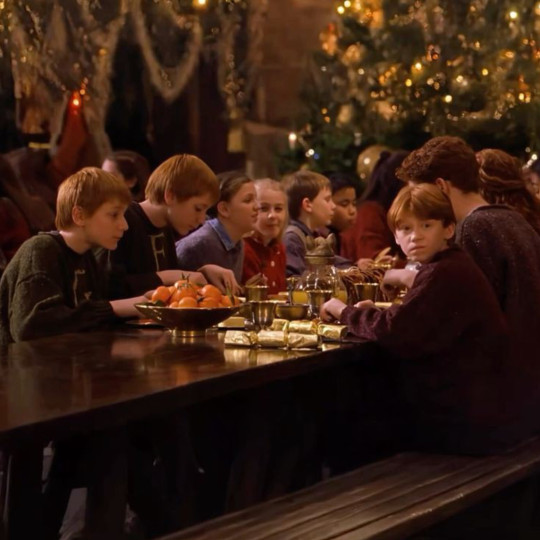



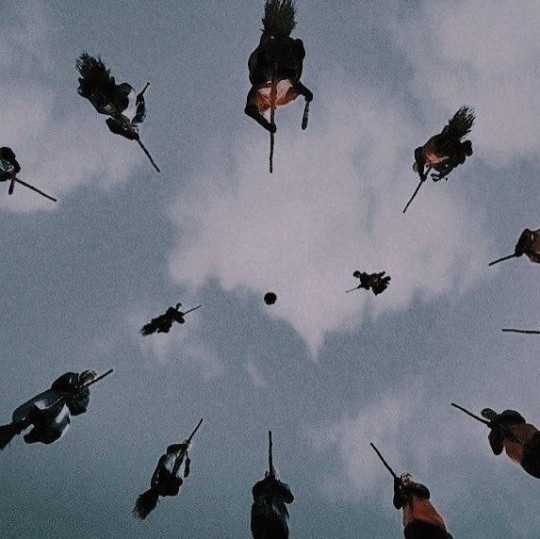
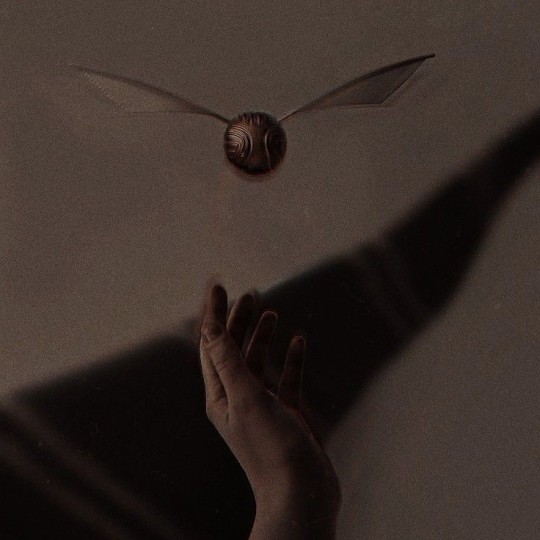
𝕴𝖙 𝖉𝖔𝖊𝖘 𝖓𝖔𝖙 𝖉𝖔 𝖙𝖔 𝖉𝖜𝖊𝖑𝖑 𝖔𝖓 𝖉𝖗𝖊𝖆𝖒𝖘 𝖆𝖓𝖉 𝖋𝖔𝖗𝖌𝖊𝖙 𝖙𝖔 𝖑𝖎𝖛𝖊.
— J.K. Rowling, Harry Potter and the Sorcerer's Stone
#poetry#dark academism#tumblrtextpost#light academic aesthetic#dead poets society#tumblrpost#poets on tumblr#light academia#autumn#literature#classic literature#english literature#literary quotes#romanticism#romanticise your life#chaotic acadmeia quotes#chaotic academic aesthetic#chaotic academia#harry potter#potterhead#hogwarts legacy#poetsandwriters#poets of the fall
17 notes
·
View notes
Text
Ngũgĩ wa Thiong'o Death: Legacy of Africa’s Literary Giant at 87
Ngũgĩ wa Thiong’o, one of the most influential figures in African literature, passed away aged 87, leaving behind a monumental legacy that reshaped how African stories are told. From his early days under British colonial rule in Kenya to becoming a fearless advocate for literature written in native African languages, Ngũgĩ’s life and work spanned over six decades of relentless creativity and…
#African authors#African literature#African storytelling#cultural legacy#decolonizing the mind#exile writers#Kenyan writer#Kikuyu language#literary activism#literature in African languages#Mau Mau uprising#Ngũgĩ wa Thiong&039;o#Nobel Prize literature#political imprisonment#post-colonial literature
7 notes
·
View notes
Text
Hello! Legacy challenge will remain on hold unfortunately.
for now, catch my Twitch streams every Sunday
@4PM MST!
Thank you all for your support and understanding!
0 notes
Text
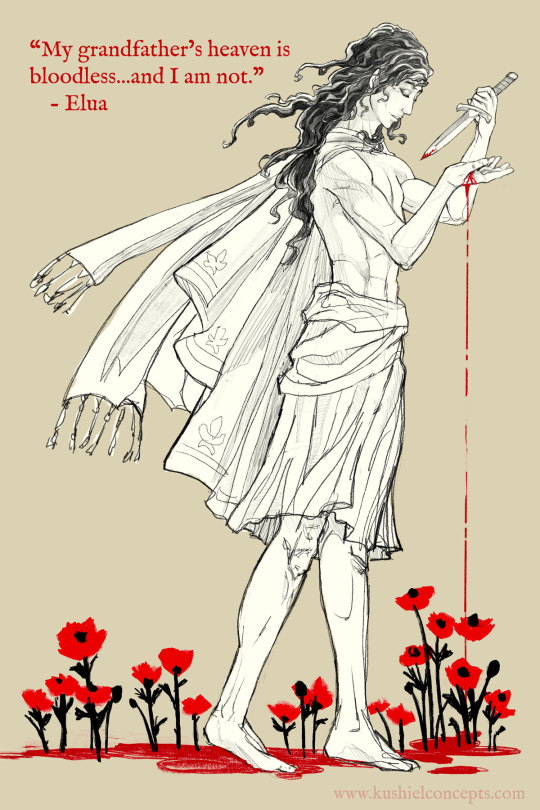

Now that my Birthstone Goddesses have wrapped up, I'm embarking on a new experimental art project which explores inspiring Fantasy books via art, sketches, and my own cover art interpretations. Basically my way of keeping my skills sharp and doing work for my cover art portfolio.
I thought I might also combine my love of narration, art, and storytelling into a video format for this one. We'll see how it goes over or if I've just embarrassed myself!
Excerpt from CASSIEL'S SERVANT by Jacqueline Carey. Art & narration by me.
If you fancy a deep dive into the art and inspirations behind this image, I've also written up a Secret Sketchbook post for my Patreon Patrons. It's a way to get a bit more insight while supporting the artist.
#Kushiel's Legacy#Kushiels Dart#Cassiel's Servant#Story Sketcher#Book Art#Literary Art#Fantasy Art#Fantasy Books#Character Art#Illustration
30 notes
·
View notes
Text
but at least there’s always characters named some variation of victor who are obsessed with creating/improving the human form. i never tire of this shit. MY little freak of a man and his freak of a literary mother has infiltrated every transhumanist narrative in the english language. & good for him
#i have been on the front lines of the ‘victor frankenstein wasn’t JUST an asshole and an idiot’ war#for as long as i can remember#yeah that’s my little unethical guy with the ego of an olympian and the nervous system of a racehorse. that’s MY guy#and you’d think the never ending not particularly creative shorthand of ‘victor’ being ‘the guy who’s messing around with the human form’#would wear on me but it doesn’t. it literally never does. my man and his legacy#i want every victor to win just for being My Guy’s literary children#MARY YOU DID IT YOU SON OF A GUN. LOOK AT WHAT THOU HAST WROUGHT. i love you#aster chat
15 notes
·
View notes
Text

The Beat Goes On: How a Generation’s Rejection of Conformity Shaped American Culture
The Beatnik movement, emerging in 1950s America, was a cultural phenomenon that left an indelible mark on the nation’s psyche. Born in the vibrant streets of Greenwich Village, this countercultural movement was characterized by its rejection of mainstream values, fervent embrace of artistic expression, and relentless pursuit of autonomy. At its core, the Beatniks sought to shatter the illusion of a perfect America, instead celebrating individuality, spontaneity, and creative freedom.
The Beatniks’ rejection of conformity was a deeply philosophical stance, asserting their autonomy and the right to forge their own paths. This desire for self-determination is a timeless and universal human aspiration, transcending era and culture. By embracing nonconformity, the Beatniks demonstrated its power as a catalyst for personal growth, creativity, and social change. Their influence can be seen in the subsequent countercultural movements, from the hippies to punk and grunge, which owe a debt to the Beatniks’ pioneering spirit.
However, the movement’s rapid commercialization and stereotyping by the media ultimately contributed to its decline. The Beatnik image became a fashionable commodity, reducing its underlying philosophical ideals to superficial affectations. This phenomenon highlights the tension between artistic expression and mainstream acceptance, serving as a cautionary tale about the fleeting nature of cultural authenticity.
Despite this, the Beatnik legacy endures, inspiring contemporary society with its advocacy for freedom of expression and challenges to societal norms. Their impact on American culture is evident in the broader acceptance of diverse lifestyles and artistic expression. The Beatniks’ pursuit of autonomy and creative expression remains a powerful beacon, illuminating the human desire for self-determination and connection with the world.
In today’s complex world, the Beatniks’ courage in rejecting the status quo and commitment to artistic expression continue to resonate. By embracing our own nonconformity and celebrating the diversity of human experience, we can push the boundaries of what it means to live authentically and creatively. The Beatniks’ story serves as a poignant reminder that our journeys are marked by the choices we make and the paths we forge, inviting us to embark on our own journeys of self-discovery and creative expression.
The Beatniks’ literary giants, such as Jack Kerouac, Allen Ginsberg, and William Burroughs, played a significant role in shaping the movement’s philosophical and artistic foundations. Their works, including “On the Road,” “Howl,” and “Naked Lunch,” not only reflected the Beatnik ethos but also helped to cement their legacy as champions of creative freedom. As we reflect on the Beatnik movement, we are reminded of the transformative power of art and the importance of preserving the autonomy of the human spirit.
What Led to the Collapse of the Beatniks? (Freewheeling, January 2025)
youtube
Sunday, January 19, 2025
#beatnik movement#american counterculture#1950s history#nonconformity#creative freedom#autonomy#self-expression#literary influence#cultural legacy#social commentary#documentary#ai assisted writing#machine art#Youtube
9 notes
·
View notes
Text
Lorien Legacies as propaganda
I feel like any adult in the modern era could and should understand how interesting it is how much lorien legacies kind of reads like "the history, as written by the victors" Theres an intense politicism to the fact that the original garde were children and didn't know of lorien and their cepan as part of the system or they died without letting them know of the faults if they experienced them at all. After all, these cepan were specifically for the lorics that would replace the elders once day. it mustve be like getting put into a sort of royal guard (even if some didnt know). They remember lorien as perfect and resource rich and wonderful meanwhile, i havent read the supplemental materials much but when lexa was introduced i read a bit on her wiki that her brother died while training with his legacies because his cepan pushed him too hard i promise you thats a story none of them would ever hear In the end the seven books come off as myth of the triumph of the end-lings and the birth of their world anew on earth Except Earthlings didnt have a say in it Except the Garde are capable of acting unilaterally however they see fit and the only consolation we have is platitudes like how "they're the good guys" and Adam once saying "it seems like you loric are born with compassion in your hearts"
the Authors did a pretty good job at cracking this idea of the good guys as perfect because there ARE bad garde, the only people who remember the Losing side of the war were CHILDREN who were shaped by the ones who raised them and the environment they were raised WITHIN, and the fact that trueborn mogadorians dont just burst into consequence-free ash when they die I must addendum this with the fact that a lot of this can be chalked up to retcon, but in a watsonian viewing of this story (viewing it from the perspective of the narrative's intenal logic within the fourth wall) Lorien Legacies reads like a perfectly tragic and fraught mythological origin story with clear heroes and villains written by a biased source, with clear holes that could be analyzed by someone to see where historical fact could clash against the truths of the situation and paint things in a different light
19 notes
·
View notes
Text
i think it’s pretty clear that the listeners/singers have far less cultural separation between genders, like as far as i can tell their malens and femalens get equal opportunities and treatment and also are physically quite similar in most forms. but instead the gender dichotomy seems to be between those in neutered forms and those in mateform. like a lot of the listeners kinda look down on mateform as a frivolous and transient form that one only takes out of necessity/brief pleasure and childbearing. idk what this means or if it means anything it’s just a thought
#all this to say i think rlain would stare at renarin having a masculinity crisis over if he should learn to read or not and be like. renarin#renarin please understand that i would sacrifice anything for my people to have the extensive literary tradition that your people have. just#suck it up and learn to read already#the few minor scenes of rlain seeing the past cultural legacy of the singers are gonna stick with me for a long time. he saw that they had#art of their own. for the first time. that is so#stormlight archive
11 notes
·
View notes
Text
Talking about Gráinne, it's always "WHY are people romanticizing her relationship with Diarmaid, we should really be harsher towards her", as if Gráinne has EVER been widely liked as a character since the O'Grady edition and translation (which has multiple flaws, btw) came out in the 19TH CENTURY.
#meanwhile like. fionn and cú chulainn do worse. and it never gets mentioned#we can ONLY recognize having a complicated literary legacy when it's men#and if a male hero has Consent Issues in some of his texts? Oh it's FINE because it's PART OF THE TIMES#(it. it wasn't)#(it really thoroughly was not)#the fenian cycle#gráinne ingen chormaic
14 notes
·
View notes